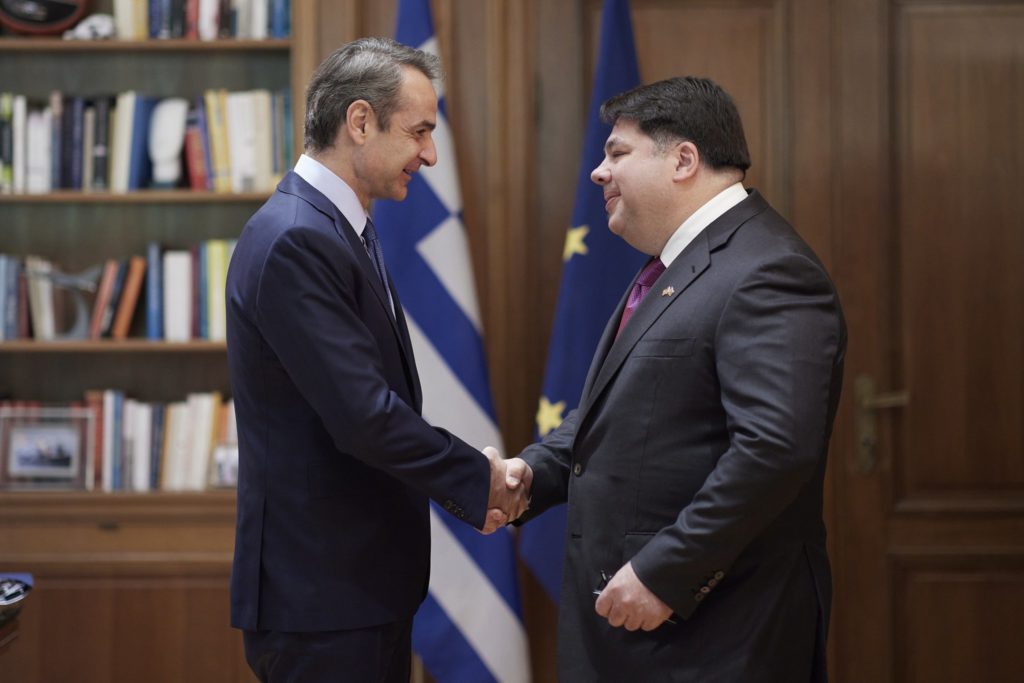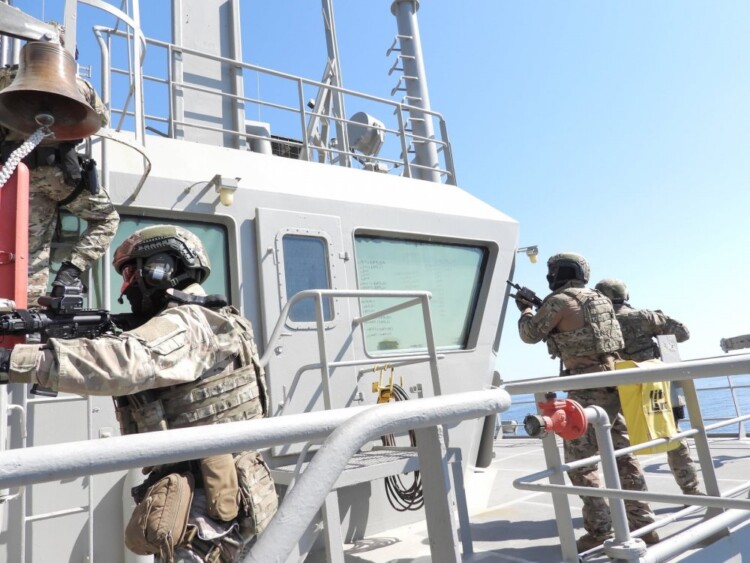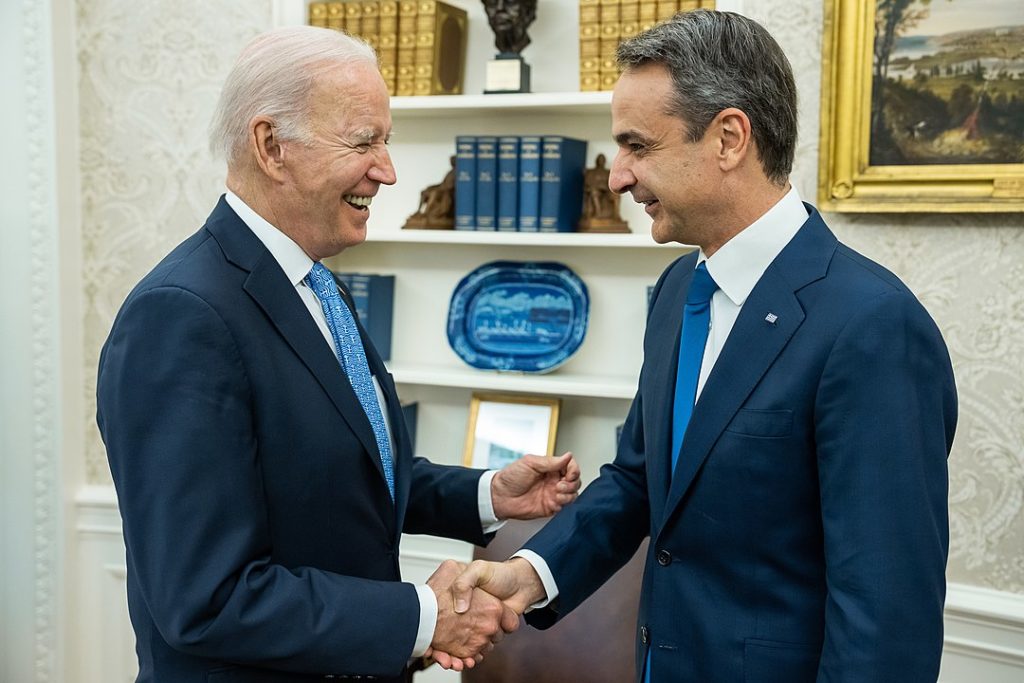
Growing Air and Naval Capabilities
After numerous incidents and disasters, such as the 1974 Turkish Invasion of Cyprus, the Hellenic military changed its doctrine into a complete state of readiness post European Union negotiations. Becoming more self-aware of the challenges around them, Athens’ ruling New Democracy Party has enhanced its foreign policy and geopolitical standing.
Greece has enhanced ties with the United States, allowing the US to lease military bases in Alexandropoulos on the mainland and Souda Bay on the island of Crete. The enhanced partnership authorized the Sixth Fleet to have a more significant time of readiness for any crisis in the Mediterranean, Balkans, and the Levant.
Growing bilateral ties with Israel, France, and Egypt gives Greece knowledge with various military exercises, economic opportunities such as the proposed EastMed Pipeline, and a counterweight to Turkish aggressiveness in the region. Hellenic pilots have continuously been called ‘NATO’s best,’ Athens will soon receive shipments of the Rafaele and F-35B fighter jets to solidify their air superiority over the Aegean.
The Hellenic navy patrols all aspects of the Aegean and wider Eastern Mediterranean—acting as a shield for Greece and Cyprus. The Hellenic navy also acts as a counterweight to Russia’s naval ambitions in the region for NATO, especially as Moscow desperately needs naval support in their ongoing war in Ukraine.
Greece Continues to be a Vital Partner Despite Prior Betrayals
Greece’s relations with NATO members have been cordial, aside from Turkey, which has led to conflicts and disputes within the defense alliance. Greece’s dark history nearly crippled its security apparatus, and one of those events came during the height of ethnic tension in Cyprus.
Cyprus, an Eastern Mediterranean island with a Greek majority for over 3000 years, was in a near state of civil war between the Greek and Turkish Cypriots after British rule ended. Greece was ruled by a military junta, also known as the Ioannidis regime, who wanted to forcefully unify the isle of Cyprus with Greece (Enosis).
The President of Cyprus, Archbishop Makarios, had increasingly gone out of favor with NATO over his close ties with the Soviet Union, Greece for his perceived mind games over Enosis, and his National Guard, which was pro-union. With elements of the Cypriot National Guard and paramilitaries, the Greek junta led a coup against Makarios, triggering a low-level Turkish invasion.
Miscalculations over the Turkish response led to the fall of military rule in Greece and the quick fall of the Cypriot junta. The civilian government took over both nations, and Athens and Nicosia expected NATO to mend the tensions before they worsened—unfortunately, this was not the case.
Fearing Soviet influence would heighten in Cyprus, then Secretary of State Henry Kissinger and the United Kingdom helped plan a second Turkish Invasion of Cyprus to secure a NATO presence on the strategically important isle. To the dismay of Kissinger, Turkey had other plans, and their second operation, Attila, was full of ethnic cleansing, mass executions of POWs and civilians, and the destruction of several cities in Cyprus.
Greece’s civilian government was not informed of invasion plans, and Athens would temporarily leave the command of NATO once they learned about the betrayal. Instead of acting as mediators, NATO would ultimately become the aggressor, and by not keeping Turkey in check, the isle of Cyprus remains fractured to this day, and hundreds of thousands of Greek Cypriots remain displaced.
Various other infractions have occurred through the past decades, such as the Imia Crisis, border clashes, and NATO members showing favoritism towards Turkey’s aggressive geopolitics instead of acting as negotiators or policing their actions.
The Hellenic Republic was among the first to recognize Russia’s aggression on Ukraine. Recognizing the Ukrainian Orthodox Church as its separate entity, the Russian Orthodox Church severed its communion with the Patriarch of Constantinople.
Mariupol, a historically Greek-built city with a sizeable Greek minority, was razed to the ground by Russia, which infuriated Greece. The Greek government has stated they will give Ukraine what they need, but countries like Poland need to do so faster than it is due to the secretory situation in the Aegean. Asking for the United States to backfill its arsenal with modern weaponry, Greece has been fair and steadfast by supplementing Ukraine’s defense while not jeopardizing its security.
Nevertheless, despite past transgressions, turbulent governments, and lack of trust, Greece remains a vital NATO state and arguably its most under-appreciated member. Historically known as the shield of the Western world in the ancient period, Athens continues to do so and will remain a vital partner and ally to the alliance and the United States.











COMMENTS